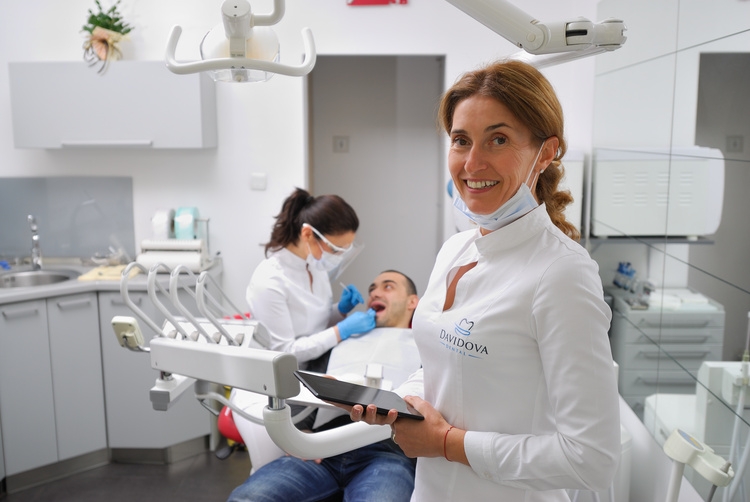8 signs of gum disease

Gum diseases are one of the leading reasons for the teeth loss in adults. They are caused mainly by bad oral hygiene, which allows the plaque to remain on the teeth and around the gums. If they are found in an early stage, they could be easily treated.
Tooth plaque is a sticky substation and it is important to be removed with a brush and dental floss. If it hasn’t been removed, the plaque transforms into dental calculus. The bacteria in it produce acids and toxins, which causes inflammation and infection of the gums and “melts” the bone.
Some common diseases, medication, changes in the hormonal balance during pregnancy or puberty, as well as hooked teeth, sharp edges of obturations, crowns and bridges play very important role for the occurence of the gum diseases.
How can you find out whether you have a gum disease?
It is important to inform your dentist, if you notice some of these warning signs:
1. Gums are red or/and swollen. Even a slight change in their color could be a sign of a disease
2. They bleed while brushing or flossing. Bleeding is a common symptom. Healthy gums should not bleed while brushing, flossing or a dental examination.
3. You have chronic bad breath or bad taste in your mouth.
4. Gums withdraw and teeth roots uncover. Teeth seem longer and could become very sensitive to temperature changes.
5. Pockets between teeth and gums become deeper.
6. Changes in the occlusion are noticed, when you press your upper and lower teeth. This is because of the change of the bone and tissues around the teeth, which in time might lead to alteration in their position.
7. Pus between the teeth and the gums
8. The partial dentures do not fit well any more.
Fortunately, there is something you can do to keep your gums healthy.
- The best way to prevent the problems is by the good oral hygiene.
- Brush your teeth for three minutes, twice a day and use dental floss.
- Unfortunately, most of the people forget about some warning signs for a long time and do not visit a dentist. That leads to immersing the alterations and loss of teeth. That is why the regular dental examinations are so important.
Professional oral hygiene
- Visit your dentist at least once in six months or even more frequently, in case that professional oral hygiene is necessary.
- While cleaning, the dentist will remove the plaque and dental calculus by ultrasonic and will polish your teeth.
- Dense teeth are harder to clean. In this case
Orthodontic treatment
Orthodontic treatment can help them adjust and improve the aesthetics, and also reduces the risk of gum disease.
